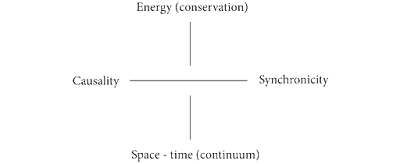When in Australia earlier this year, I devoted local library time to reading Paradise Lost by John Milton. I almost made it to the final book (aka chapter) by the time I returned home in February, and admit now I have but one book to go.
Upon my return, two of my online English conversation partners--students working on language proficiency through conversation, as I try to extend and expand their knowledge, skills, etc.: They wanted to discuss religion and the Bible, and through that gain greater range of expression, fluency in speaking and better language comprehension. So be it, although one student needed re-direction, having thought conversation was (my) conversion.
Apropos of the above and the fact each student wanted to discuss the book of Genesis first, I went to King James and began reading. (Students give earnest teachers homework.) The reading was enlightening. I again recalled that the word of God, a book of books, required endless effort by scholars and in my case Catholic sermonizers to understand, that is interpret, what he or He "wrote." Now I get it, the it being the necessity to discern meanings through tireless effort and acquired expertise to arrive at what that sacred text proffers.
Milton does the best God's-word rendition of Genesis, and I will read and re-read Paradise Lost and more from his opus. Us mortals can never fully understand and appreciate what he, a blind genius, accomplished, to wit: A masterful, compelling poetic and learned interpretation, that is re-telling, of the Genesis story. Paradise Lost cannot be surpassed in my view, so worth more time to savor and learn and appreciate as much as I can.
As for King James, the first lines of Genesis already are up for alternative readings. Then we have God creating man and the injunction to multiply and rule over beasts and bower. Woman comes off, as in Milton's take, not very well or good. Such a sorry history and legacy and burden for our better halves. Then after creating man, woman and families, He, God according the the narrator, comes around to Adam then Eve and the (very) first commandment--not to know good from evil. If you violate this injunction, you (Adam) and your descendants are condemned to death (Milton's gloss on death is helpful here).
What? All was blissful ignorance and then not so because of particular knowledge? and for this one transgression, to be more fully coincident with the image of God, as He was reported to have made us, we must suffer in this imperfect world? or eternally somewhere warmer, forever and ever?
Why if the good book is God's word, and concerning the Bible my students say every word is His and true, did He write such that there are questions, ambiguities, cruelties, childish admonitions, contradictions, threats, unreasonable dictates, unrealistic or ill advised behavior toward hostile others, etc. Surely He could have done better, which seems to prove these days that He is a he and not She.
The enterprise of mandatory and endless interpretation of the book-of-books looks more like a hodgepodge of old cultural artifacts cobbled together to keep us busy . . . differing in view among one another and worse. And this inevitable conclusion from the very first sentences of the sacred book.
So. Nice story, or stories, that can be better told in more gifted hands I believe.
Now about those other sacred texts. . . . Let's see, which one?
No. Here's a better idea. I'll continue with Milton and at the same time regularly pay obeisance to Shakespeare. Clearer writing, richer descriptions and characterization, better, more engaging stories all promising less ambiguous understanding of the message(s) and me and my provincial corner of this now (always was) imperfect paradise.
__________
* Dedicated to friend and teacher, Dr. Michael Russo. May we meet again to share insights and discern truths in a world better suited to us. "In light of the above, I believe your dear S. fits as one of the few almost fathomable interpreters of God's word, but can we read and understand what S. wrote?" You may be the only one to make that claim that yes. . . .




